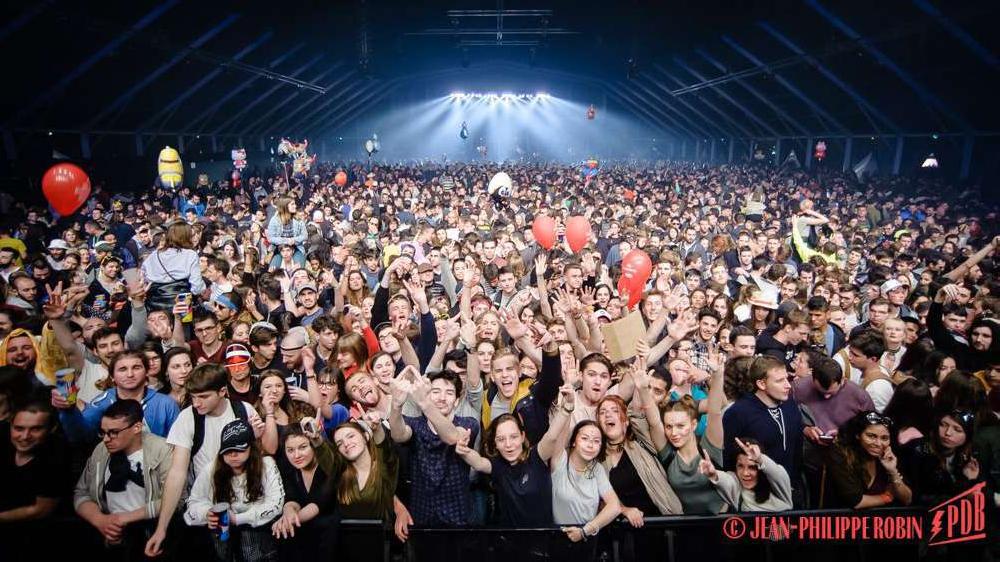Features
The Arenametrix Formula: Know Your Audience & Sell More Tickets
Arenametrix is a software platform that aims to help anybody selling tickets to build customer loyalty, reach new audiences and sell more tickets through leveraging data.

Jean-Philippe Robin – Le Printemps de Bourges 2017
Arenametrix wants to help promoters understand their audience
Pollstar spoke to Arenametrix’s UK country manager Louis de la Marnierre, after the company won the Insight and Analytics award at the 2018 Ticketing Business Awards in Mancherster, England.
Arenametrix was developed by Tech4team in France, a company that specializes in dynamic pricing for events. It is a software platform, which gathers and evaluates as much data of an event’s audience as possible, so that event organizers can make informed decisions that will eventually sell more tickets and increase revenues. “What problems are they trying to solve, and how can we use their data to help them?” is the first question in any meeting with a potential client, said Marnierre.
It can be a small festival that wants to grow its audience, a large festival that wants to award its most loyal fans, or a sports team that intends to tackle the problem of no-shows at their games.
“We don’t just include user data from the ticketing software our clients are using, but from any other source as well. We then unify that data to make it as useful as possible. We have a 360-degree view of every client that ever came and bought online,” Marnierre claims.
The more data is made available, the more precisely event organizers can segment their audiences according to demographics, buying behavior, interests, loyalty, localization and much more. The more promoters know about their audience, the more personalized and relevant they can communicate. “The idea is not to spam, but to send better quality content to specific audiences,” said Marnierre.
Arenametrix also helps to reach and acquire new audiences.
“You can create targets and send them to Facebook through our application. Facebook then builds a lookalike of that target, which means it’s going to find people with homogeneous characteristics, which in turn makes your marketing much more effective,” he explained.
“You could, for example, target your most loyal festivalgoers. If you create that target and send it to Facebook to create a lookalike, you are able to reach people that are more likely to come to your event.”
Festivals spend money on Facebook, radio, TV and print ads. According to Marnierre, Arenametrix tells them exactly how many ticket sales can be directly attributed to each measure, so they know how to reallocate budgets according to the success of specific marketing actions. Customizable analytics and reporting are part of the software’s service portfolio, too, and clients receive sales reports automatically on criteria that are most relevant to their respective organizations.
Another area is revenue optimization, one element of which is sales prediction, the other price recommendation or dynamic pricing: a concept that’s old news in the aviation, hospitality and sports industries, but still an alien concept in most of live entertainment for various reasons.
“If a game sells super well, they know they can up their prices, but they don’t know by how much. We help with that. We can also do rules-based pricing, which is basically saying that if a certain element happens, the price will change in a certain direction,” Marnierre said, adding that the aforementioned list of features wasn’t exhaustive, and that all of these options were available to event organizers on a simple web platform that was easy to use.
He recalls one particular festival, which wanted to encourage its guests, a lot of them families, to opt for the family tickets, which weren’t selling well.
“We targeted people that are over 30, 35, and bought tickets for at least four people individually, and included other factors that made it seem likely they were family, and the festival was able to advertise family passes to them.”
Other use cases include analyzing moments when people are most likely to buy, and adapt communication accordingly; targeting people that came for the past two editions but haven’t bought their tickets yet, to increase purchase delays and build loyalty; or, in the case of theaters, comparing sales of the same show but different performances by days of the week or hours of the day. Another theater-related issue is loyalty cards. “You can target persons that came more than twice or three times in one year and suggest they get a loyalty card. It creates new relationships with customers.”
Arenametrix’s clients in France include festivals such as